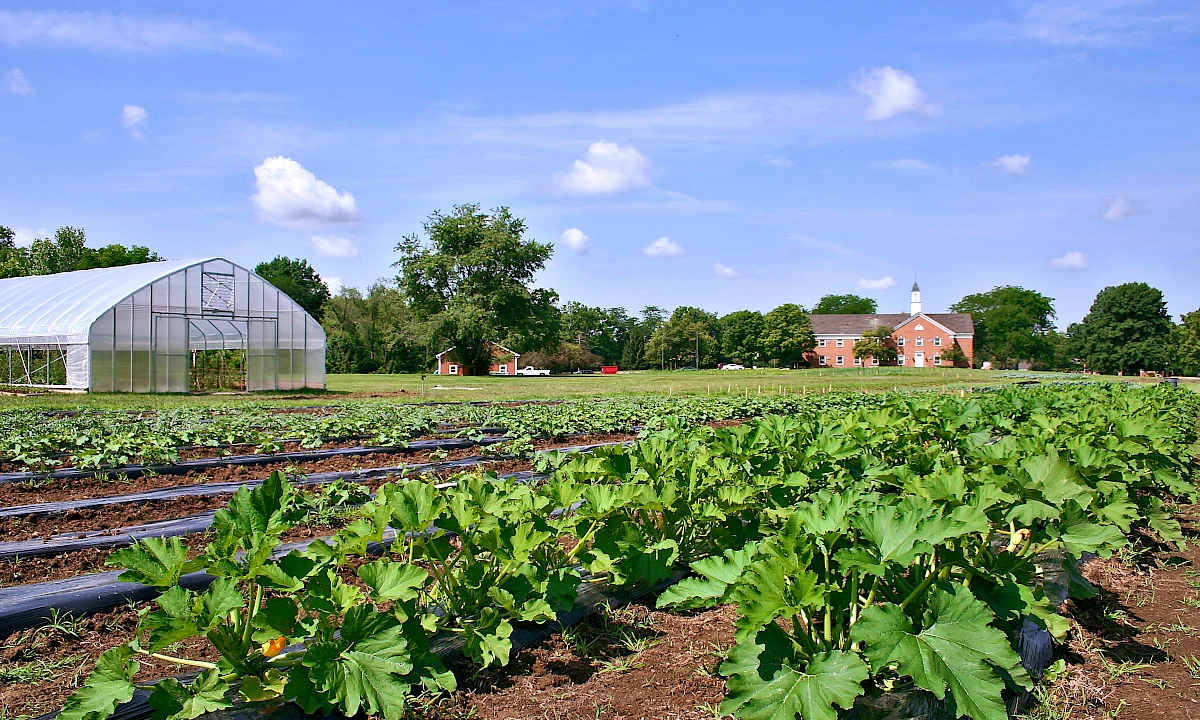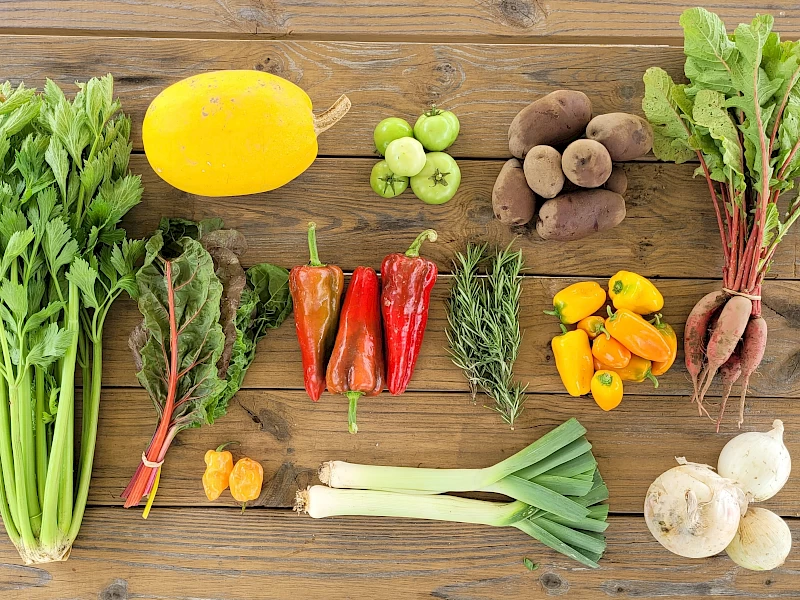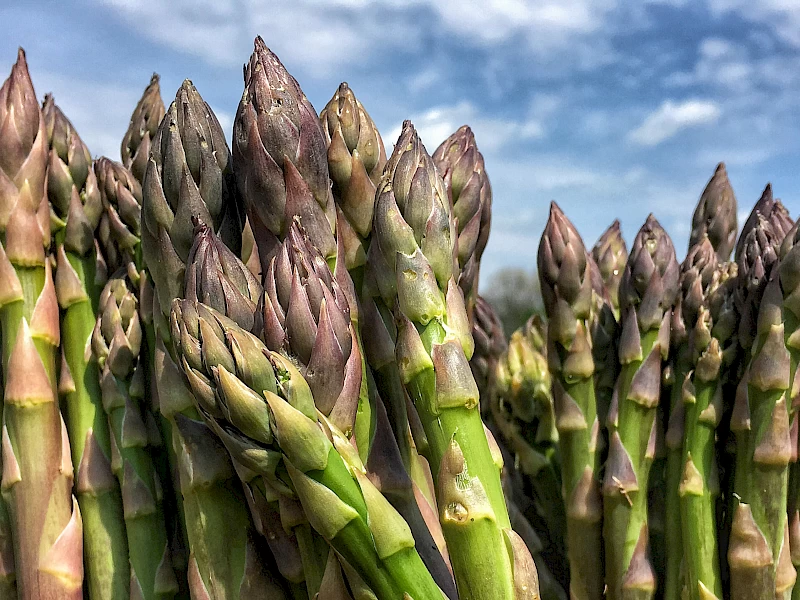Agroecology recognizes interconnection, synergies and the vital importance of diversity- from the soil to those who eat food that is produced. While agriculture is a human-created system that can imply action upon, agroecology intends human accompaniment with macro and microecosystems and the life that resides within.
In 2024, agroecology practices made visible include:
Ecological elements
- Mindful tillage: Shifting into a minimal tillage production system, reducing frequency, depth and intensity of soil disturbance to support the soil biome and natural nutrient cycles while minimizing erosion and pollution to both air and waterways.
- Cover cropping: Planting a variety of plants (sorghum, vetch, rye, peas, turnips, buckwheat) between warm season crops and over winter to optimize photosynthesis and soil building while releasing available nutrients into the soil during breakdown and improving water retention.
- Deep mulching: Protecting the soil between food plants with grass clippings gleaned from campus, mowed cover crops, aged arborist mulch and straw.
- Understanding soils: Completing soil testing and analysis in all fields to increase our understanding of soil health and inform management decisions and conducting experiential education on soil physical properties with the farm team.
- Seed diversification: Growing a mix of hybrid, landrace and open-pollinated varieties and learning how to save seed. All seed stock is non-GMO.
- Small scale vermicomposting: Caring for red wigglers to produce nourishing vermicompost and teas for soil fertility.
- Increasing perennial plants: Improving care of existing perennial plantings and establishing additional rhubarb, currants, persimmon and plum trees in a perimeter area that drains into wetlands.
- Organic matter management: Soil organic matter is the foundation that maintains soil life. It serves as the habitat for a diverse, dynamic population of soil microorganisms, micro and macro arthropods, invertebrates, and vertebrates. Organic matter is produced by turning cover crops and other fresh plant matter into the soil. These “green manures” replace the use of animal-based manures. Through harvesting on-site organic matter to build, amend and mulch, and to compost into stable humus, we build soil organic matter over time.
- Practicing integrated pest management with careful monitoring of crops and utilizing USDA National Organic Program (NOP) approved amendments when thresholds require. We farm without the use of synthetic herbicides, pesticides or fertilizers.
Social and economic elements
- Exploring culturally significant crops through expanding our knowledge and experience of new crops and recognizing the ethnobotanical heritage of cultivated vegetables.
- Supplying fresh produce to food insecure communities in partnership with People in Need of Delaware County, the Linden Fresh Market, and other nonprofits.
- Practicing radical hospitality to all within and beyond the campus by welcoming visitors, hosting farm tours and immersions throughout the growing season with the Central Ohio community and beyond.
- Collaborative leadership and team building within the farm and across the MTSO community.
- Supporting reconnection and reciprocity in our relationship with Earth.



